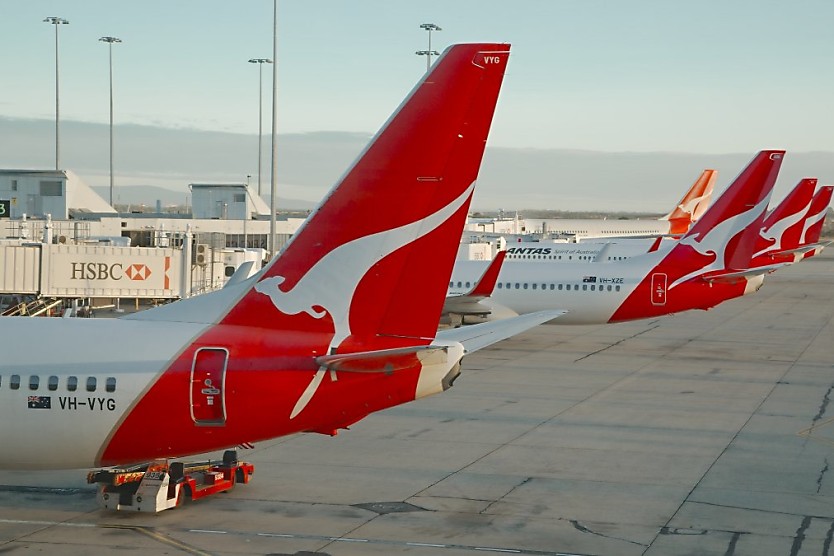Weekly roundup: Uber’s issues, Qantas facing consequences and mental health benchmarks
SHARE THIS ARTICLE

In this week’s round-up of HR news, Uber has been forced to pay $179 million to Australian taxi drivers, Qantas could soon pay millions over COVID-19 sackings, and Singapore workplaces are set for the ‘world’s first’ mental health benchmark.
Uber's pockets getting eaten
According to CNN, Uber will have to pay more than 8,000 taxi and hire car drivers in Australia almost $272 million in compensation for losses they have suffered since the introduction of Uber to the country in 2012.
This settlement is the fifth largest to happen on Australian soil, according to Maurice Blackburn Lawyers, which was the firm that filed the class action lawsuit back in 2019. Uber confirmed in a statement that it had reached an agreement in principle but did not comment on the details of the proposed settlement.
“This case succeeded where others have failed,” Maurice Blackburn stated. “We’re proud that thousands of people put their faith in us to deliver this outcome, and to hold Uber to account.”
This isn’t an isolated case that has been proposed against Uber, who has faced these around the world since its launch in 2009, including from passengers, governments, and its own drivers. It has also made “significant contributions to various state-level taxi compensation schemes” in Australia since 2018, according to the company.
The lawsuit in Australia alleged that Uber had operated illegally in four of Australia’s six states — Victoria, NSW, Queensland and Western Australia — using vehicles and drivers without the necessary licenses and accreditations.
Uber isn’t a company that stays out of controversy. At the moment in the US it is facing ongoing lawsuits over how it classifies its drivers. In its latest report, the company said its business would be “adversely affected” if drivers were reclassified as employees or workers, rather than independent contractors.
The ride-sharing giant is being held to account across the world for several indiscretions.
Qantas COVID-19 consequences
According to The Guardian, Qantas is getting called out for compensation after its decision to axe 1,700 employees due to the pandemic, and the impact it had on employees. A number of former Qantas employees were prescribed medication to deal with depression and anxiety after being illegally sacked in the middle of 2020.
Compensation hearings began on Monday to resolve the legal battle between the Transport Workers Union and the airline over its pandemic-induced decision to outsource almost 1,700 ground handler jobs.
Qantas attempted to wriggle out of paying this compensation to their former employees by appealing the decision to the full bench of the court and later the high court, both of which were unsuccessful, with the matter now returning to the federal court to determine compensation and penalties for the airline must pay.
A court previously found Qantas contravened the Fair Work Act by its decision to outsource the roles of almost 1,700 ground staff at 10 Australian airports in late 2020.
Qantas also faces the prospect of being issued multimillion-dollar penalties for breaching the law. One of the sacked workers, Don Dixon, stated that he was hopeful Qantas would do “the right thing” and compensate affected workers.
“Three years ago we got thrown out the door unlawfully,” said Dixon. “We did absolutely nothing wrong, except turn up, do our job, go home and keep the travelling public safe.”
Qantas said it also wanted the former workers to receive “fair compensation as quickly as possible”.
“Qantas sincerely apologises and deeply regrets the personal impact the outsourcing decision had on these former employees,” a spokesperson said in a statement.
Mental health benchmarks are now a thing
A new benchmark is being developed in Singapore to help employers improve the sense of wellbeing among staff and to show them the business value of doing so. According to The Strait Times, A local charity by the name of Workwell Leaders wants to actively track the impact on workers that changes in the workplace, workload, and work design have.
Workwell Leaders, which promotes leadership in workplace wellbeing, also wants to put a value on what happier and more resilient workers bring to productivity, attrition, and innovation.
It has set up a work group to design a research study that will identify best practices for local organisations to benchmark against, at no charge. The group hopes to finish the study parameters by end-October. The charity will commission the research and hopes to release its findings by the end of 2024 or in 2025.
Workwell Leaders added that the first adopters will likely be larger companies, but the benchmark will be designed to encourage these firms to move their best practices down their supply chains of small and medium-sized enterprises.
Chairwomen for Workwell Leaders, Anthea Ong, stated: “Whether it’s peer support, training resources, training for mental health first aid, even creating peer support groups that also involve some of the employees of the partners, that’s an opportunity that we haven’t leveraged to get the larger organisations to bring (SMEs) along.”
RELATED TERMS
Compensation is a term used to describe a monetary payment made to a person in return for their services. Employees get pay in their places of employment. It includes income or earnings, commision, as well as any bonuses or benefits that are connected to the particular employee's employment.
Kace O'Neill
Kace O'Neill is a Graduate Journalist for HR Leader. Kace studied Media Communications and Maori studies at the University of Otago, he has a passion for sports and storytelling.

